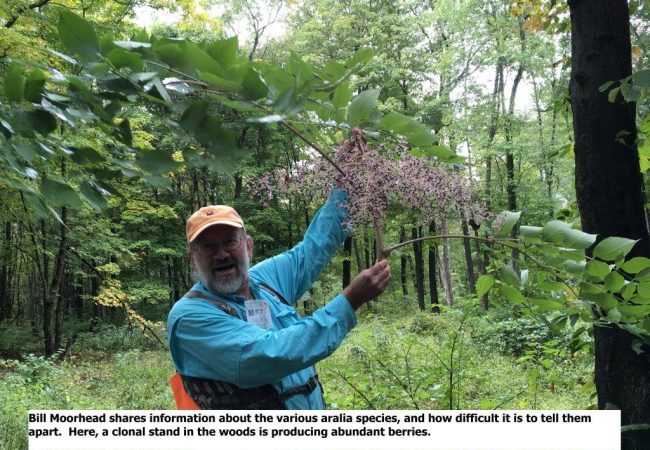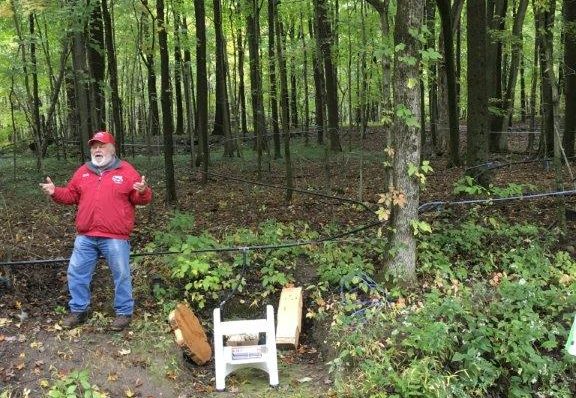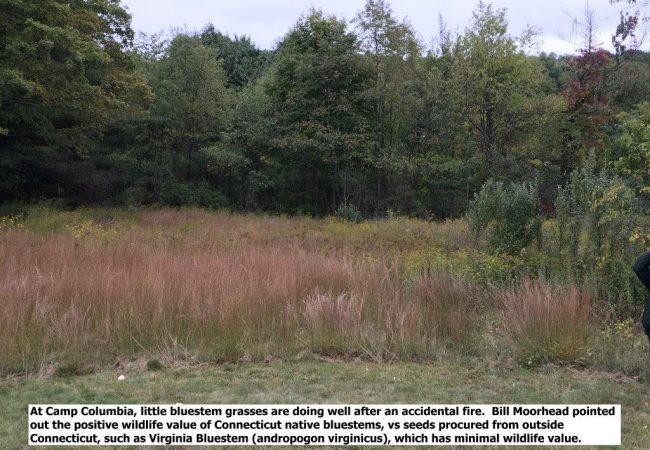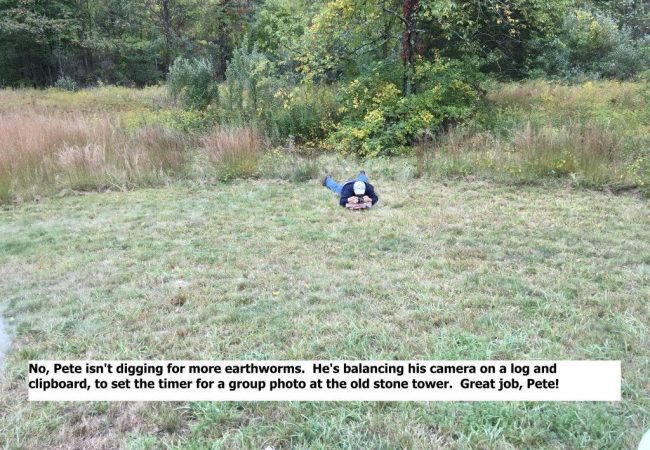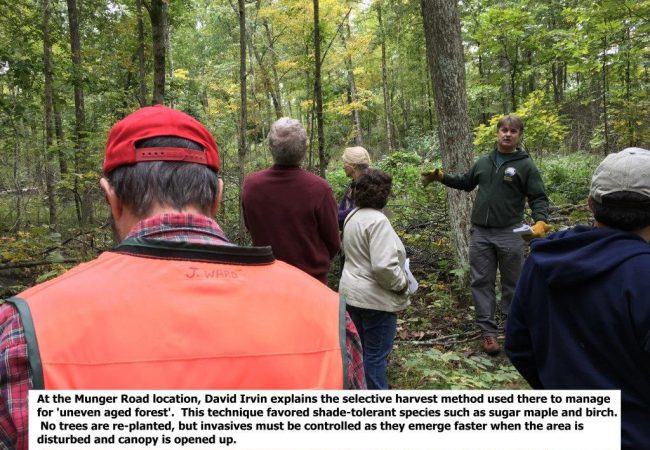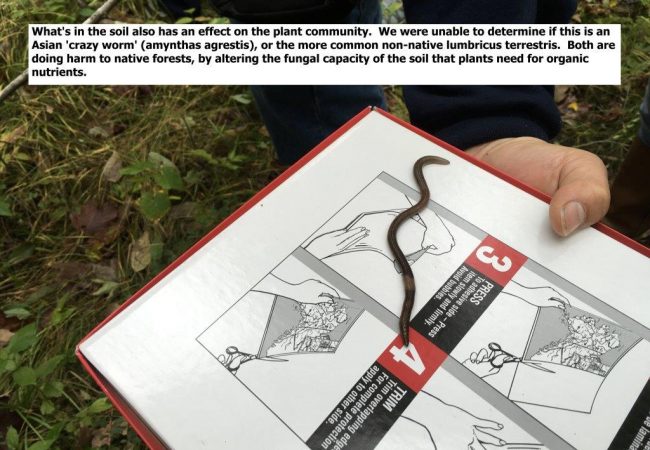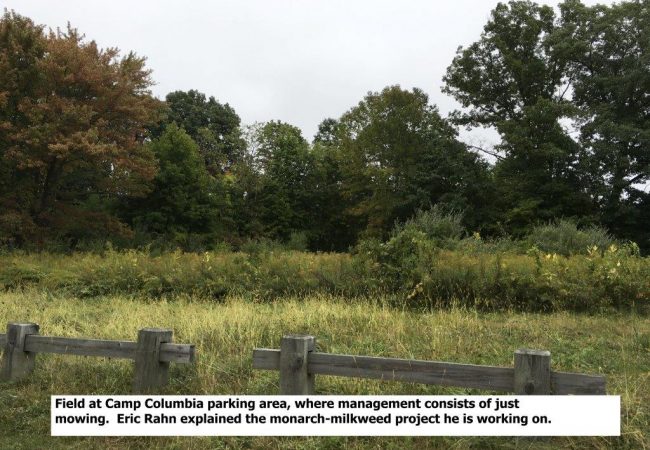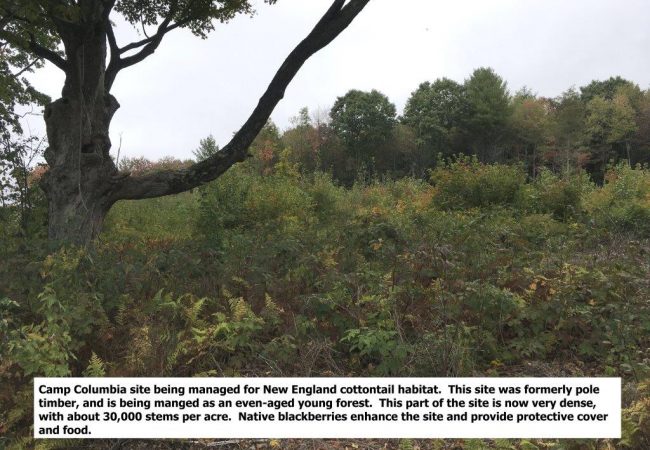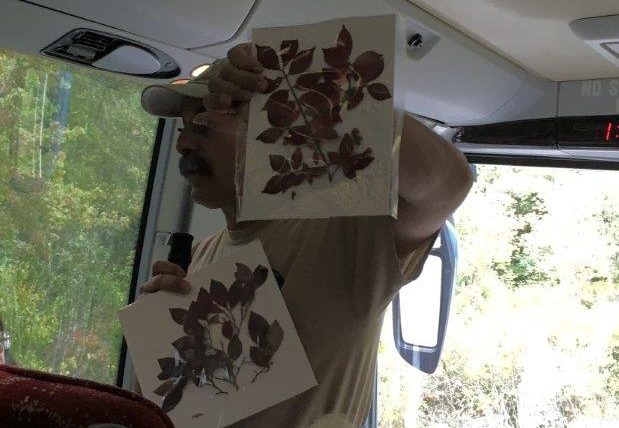The new expanded edition of, “Invasive Plants In Your Backyard! A Guide to Their Identification and Control”, recently published by the Connecticut River Coastal Conservation District, is now available as a PDF on the CIPWG website. Click here to view this updated resource.
Author: Ponak, Kristen
2016 Symposium- Tuesday, October 11, 2016
The Connecticut Invasive Plant Working Group (CIPWG) 2016 Invasive Plant Symposium was held on Tuesday, October 11, 2016 at the Student Union, University of Connecticut in Storrs, CT. The theme of the symposium was: Invasive Plants in Our Changing World: Learn from the Past, Prepare for the Future. The 8th biennial conference featured national, regional, and local experts as well as citizen volunteers sharing practical solutions for invasive plant management and actions needed to promote native species and improve wildlife habitat. Nationally-recognized Keynote speaker, Jil Swearingen, co-author of Plant Invaders of Mid-Atlantic Natural Areas presented, “We’re Moving on Up: Invasive Plants Heading North”. Karl Wagener, Executive Director of the Connecticut Council on Environmental Quality, spoke on “Connecticut’s Future: Rooted in Choice”. William Hyatt, Vice Chair of the Connecticut Invasive Plants Council, provided a legislative update. Charlotte Pyle, recently retired from the USDA Natural Resources Conservation Service delivered closing remarks.
Concurrent afternoon sessions included:
- What Are Other States Doing? Panel discussion with New England invasive plant experts
- Native Plants for our Pollinators – Creating a balanced and healthy pollinator environment
- Management of Key Invasives: Success Stories and Progress Reports
- Biological Control: No Animal Too Small – Valuable invasive plant management tools
- Aquatic Invasive Plants – Updates on Hydrilla and other new aquatic invasive plant threats
- Plants to Watch Out For – The new invasives that threaten our borders
Research and management posters, an invasive plant identification area, and other educational exhibits were featured throughout the day.
Visit the 2016 Symposium page to view presentations
Photos from Celebrating Connecticut’s Landscape Fall Foliage Tour on Sunday October 2, 2016
“Celebrating Connecticut’s Landscape”: Fall Foliage Tour was held on Sunday October 2, 2016. The tour began at Sessions Woods Wildlife Management Area in Burlington, CT. Participants learned about Connecticut’s native plants, habitats, and invasive plant management. Tour leaders were: DEEP Wildlife Biologist Peter Picone, UConn Forester Tom Worthley, Dr. Jeff Ward CAES , Charlotte Pyle, Ecologist, David Irvin, CTDEEP Forester, Bill Moorhead , Botanist, and Jason Marshall (Conservationist/Sportsman).
Special thanks to Northwest Connecticut Sportman’s Council (NWCSC) for a grant towards the rental of the tour bus.
USDA FY2016 grant and partnership programs
USDA FY2016 grant and partnership programs for invasive species has been updated: http://www.invasivespeciesinfo.gov/toolkit/grantsusda.shtml
CIPWG mentioned in New England Society of American Foresters News Quarterly
CIPWG was mentioned in the NESAF Quarterly Newsletter. The article is on page 12.
2015 IPC and CIPWG Annual Reports
Click here to view the 2015 CIPWG Annual Report, or the 2015 IPC Annual report.
October CIPWG General Meeting
Minutes and presentations from the October 6th General Meeting are now posted here.
Penni Sharp
To the CIPWG community,
It is with great sadness that we inform you of the passing of Penni Sharp on Sunday, December 14, 2014.
Penni was an excellent botanist and wetland biologist. She was very active in numerous organizations, including the Connecticut Invasive Plant Working Group, where she served as Co-chair for many years, the Connecticut Botanical Society, and the Connecticut Association of Wetland Scientists. It was truly an honor and a privilege to have known Penni as both a colleague and a friend. She inspired so many of us with her passion for protecting the environment, and she will be dearly missed.
Please follow the link to Penni’s obituary in the Hartford Courant: http://www.legacy.com/obituaries/hartfordcourant/obituary.aspx?pid=173545258.
Sincerely,
Donna Ellis
2014 CIPWG Annual Report
The 2014 Connecticut Invasive Plant Working Group (CIPWG) Annual Report is now available. Click here to view the report.
Bittersweet
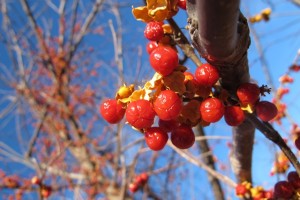
Oriental or Asiatic Bittersweet (Celastrus orbiculatus) is a highly invasive, non-native vine that grows vigorously, damaging trees and other plants and forming dense stands. Bittersweet produces an abundance of bright fruits, which are spread by birds and other animals to new locations.
The sale of Oriental bittersweet has been prohibited in Connecticut since 2004. The law also prohibits the importation, purchase, and cultivation of bittersweet and other listed plants. Fines for violations of the law are listed at $50 per plant. The law includes all reproductive portions of the plant, including seeds.
Review the full text of the law here.
CIPWG’s 1 page fact sheet for this species is available here.
Read a DEEP press release about bittersweet and alternatives: here.
If you see invasive Oriental bittersweet for sale in Connecticut, please contact CIPWG at info@cipwg.org.
